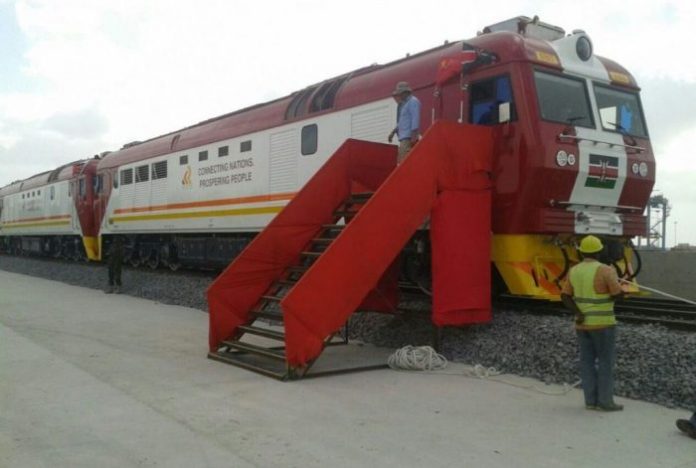Kenya’s SGR Loan: A shocking report has emerged on how Kenya’s key strategic assets at home and abroad were used as collateral for the heavy Chinese loans that the government has been taking.
The report that was published by Kenya’s leading media group, Nation Media Group (NMG), says that Kenya’s key assets are currently exposed and will not be protected if the country defaults on the Chinese loans that the Jubilee government has been taking.
The most prominent of these loans is the one that has been facilitating the construction of the Standard Gauge Railway.
“The initial agreement for the Mombasa-Nairobi railway signed on May 11, 2014 also details how the pact will be governed by Chinese laws with all disputes being arbitrated in Beijing,” says a a report that appeared in the NMG’s Sunday Nation.
Why China said no to Uhuru’s Sh. 368 billion SGR loan request
The report further says that the contract, and a subsequent one on the Nairobi-Naivasha phase, also have a confidentiality clause gagging Kenya from making the deal public “without prior written permission of the lender (China)”.
These revelations come as Kenyans continue to fear that the Port of Mombasa might be seized in case of a default. But shockingly, it is now emerging that it is not only the port that is at risk.
“Neither the borrower (Kenya) nor any of its assets is entitled to any right of immunity on the grounds of sovereignty or otherwise from arbitration, suit, execution or any other legal process with respect to its obligations under this Agreement, as the case may be in any jurisdiction,” the Sunday Nation quoted Clause 5.5 of the Preferential Buyer Credit Loan Agreement on the Mombasa-Nairobi SGR reads.
Apparently, the contract is signed by National Treasury Cabinet Secretary Henry Rotich and Mr Li Riogu, then-Chairman and President of the State-owned Export-Import (Exim) Bank of China.
“In the deal, Kenya is also compelled to import goods, technology and services from China,” says the Sunday Nation.
Kenya has also been barred from revealing details of the contract it signed with China.
“Without the prior written consent of the lender (China), the borrower shall not disclose any information hereunder or in connection with this agreement to any third party unless required by applicable law,” the confidentiality clause is quoted by the Sunday Nation.
Further, any disputes on the SGR loan will only be resolved in Beijing through the China International Economic and Trade Arbitration Commission (Cietac).
“The arbitration award shall be final and binding on both parties. The arbitration shall take place in Beijing,” the agreement says. This now effectively blocks other international commercial dispute resolution avenues.
The Sunday Nation also says that Kenya has further signed never to dispute the choice of Cietac as an arbitrator and to take its decision.
“The Exim Bank also makes it a mandatory requirement that the commercial loan be insured by the China Export and Credit Insurance Corporation (SinoSure). All charges regarding the management of the loan, which run into billions of shillings, are to be paid by Kenya,” the Sunday Nation reports.
In another strategy to secure the Chinese lenders, two escrow accounts were set up with full control of the Chinese – especially at default or when railway revenues fail to meet the loan obligations. “The agreement states that while the revenue account would be in Kenya Shillings, the repayment one would be in US Dollars,” the Sunday Nation says.









